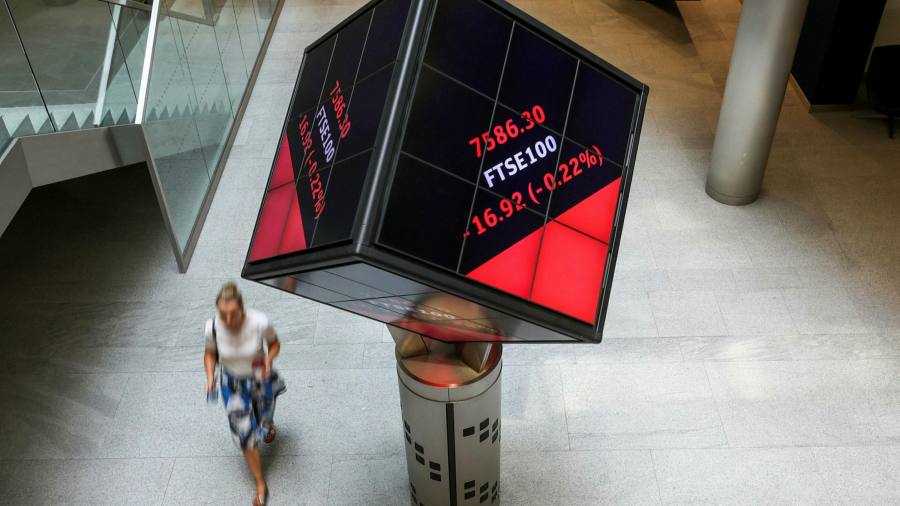[ad_1]
Stock markets offer a blunt measure of buyer’s remorse. None more so than London Stock Exchange Group, whose shares have sunk more than 25 per cent from a record high in February.
A month earlier LSE completed the $27bn purchase of Refinitiv, a deal that was sold to investors as transformational. It was a pitch familiar to all finance professionals — that automation and big data were burrowing their ways into all levels of decision making.
Combining Refinitiv’s 150,000 data sources with the essential market plumbing owned by LSE would create a data-driven finance incumbent, breaking the link between trading volumes and revenues. Data and analytics made up about three-quarters of its pro forma group revenue for 2020, with capital markets and post-trade services providing the remainder.
But by the time of LSE’s full-year results in March it was obvious that to fulfil its promise, Refinitiv needed major surgery. Shareholders balked at LSE’s higher than expected £1bn budget to integrate Refinitiv in the first year.
It did not help that LSE’s own data and analytics operations had been slowing, most dramatically at the FTSE Russell index compiler. Then last week came a sale by Thomson Reuters and Refinitiv management of nearly 2 per cent of LSE stock, apparently to settle tax liabilities. Reasons became plentiful to feel unease about what exactly LSE had bought.
Initial deal hype and bullish analyst forecasts had boosted LSE’s market value past £55bn in February, putting it among the FTSE 100’s top 10 most valuable companies. Worries have since multiplied that LSE lacks the boardroom experience needed to take on a complex, flawed and top-heavy business that by revenue is twice its size.
As Warren Buffett said: “When a management with a reputation for brilliance tackles a business with a reputation for poor fundamental economics, it is the reputation of the business that remains intact.†Refinitiv’s poor economics had repelled potential suitors for at least five years before LSE took the plunge. And though LSE bosses have shown ambition, their brilliance awaits evidence.
David Schwimmer, chief executive, and Don Robert, the chair, have little experience of merger integration. Moreover, Refinitiv’s longstanding problems have no easy fix. Trading screens, by revenue its biggest data market, are also its toughest. Refinitiv’s Eikon platform is a distant second behind Bloomberg’s ubiquitous terminal, which has been taking share in a shrinking market. Cash has been sunk into modernising and improving Eikon since the Blackstone-led acquisition of Refinitiv in 2018. However, its share continues to be squeezed both by Bloomberg’s all-you-can-eat premium product and pick-and-mix options companies such as FactSet and Capital IQ.
LSE’s solution is to retire the Eikon brand, which analysts have interpreted as a tacit surrender of traders’ desktop space to Bloomberg. Its replacement, Workspace, is built around open source software that apes the modular flexibility of smaller competitors.
The hope is to make trading platforms more like Enterprise, Refinitiv’s second-biggest data division. Enterprise applies an open-access approach to the huge data collection and distribution network that is a backbone for Refinitiv’s many services. Foreign exchange and fixed income products will probably adopt the same modular model, inviting subscribers to shop in a data supermarket rather than buying access to the buffet.
LSE brings some expertise to the project. The customer count for its real-time data services has been in steady decline since 2015. Yet because subscribers have added more feeds and bought broader licences, divisional revenue has grown.
Reasons for optimism can be found on the transaction side of LSE’s business, including its majority stake in Tradeweb for rates and credit markets. Having been relatively slow to adopt electronification, these markets now deliver class-leading growth, and Tradeweb carries the kind of proprietary mission-critical content that is only occasionally found in Refinitiv’s other silos.
The media industry provides a parallel. In a world already drowning in data, must-have content gets the highest valuations. Owning the delivery pipes has not been enough. LSE has yet to prove whether transformation will create a financial markets Netflix or a National Grid.
bryce.elder@ft.com
[ad_2]
Source link





